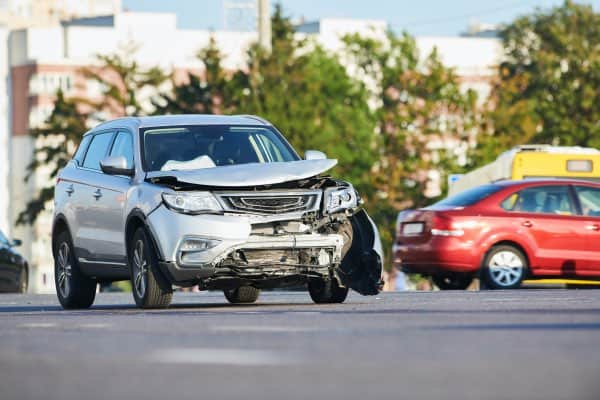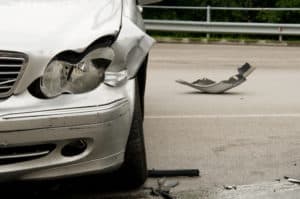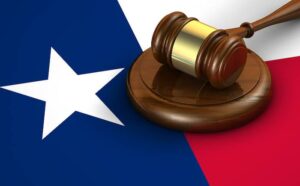
If you’ve been injured in a crash, an Arlington Uber accident attorney can be an invaluable resource. Rideshare services have changed the way people get around Arlington and the greater DFW Metroplex, making it easier than ever to arrange transportation through a mobile app. But with millions of trips on the road, serious and life‑changing accidents are an unfortunate reality.
When a routine trip ends in a serious crash, the convenience of ridesharing is replaced by complex insurance issues, multiple parties who may be responsible, and challenging legal questions that are not always straightforward.
If your Uber or Lyft trip ended in an accident, you could be facing significant physical pain. An experienced Arlington, TX Uber accident attorney can help protect your rights, untangle the insurance issues, and guide you toward the compensation you deserve.
Contact Branch & Dhillon, P.C. at (817) 533‑3430 for a free, no‑obligation consultation to discuss your case.
Arlington, TX Uber Accident Guide
- How Our Arlington Uber Accident Attorneys Support Your Rideshare Injury Claim
- Understanding Insurance Coverage in a Texas Uber or Lyft Accident
- Determining Who Is Liable in an Arlington Uber or Lyft Accident
- Common Causes of Rideshare Accidents in Tarrant County
- Financial and Physical Effects of an Uber or Lyft Accident in Arlington
- Texas Deadline to File a Lawsuit After an Arlington Uber or Lyft Accident
- Contact an Arlington Uber Accident Attorney Today
How Our Arlington Uber Accident Attorneys Support Your Rideshare Injury Claim
After an Uber or Lyft crash in Arlington, it is common to feel uncertain about your next steps. A rideshare accident claim works very differently from an ordinary two‑car accident. Instead of dealing with just one driver’s insurance company, you could be facing a large corporation with multiple layers of insurance and its own team of lawyers.
The attorneys at Branch & Dhillon, P.C. understand these challenges and take on the legal burden so you can focus on your health. We provide clear guidance and steady advocacy for those injured in rideshare accidents across Arlington and the greater DFW Metroplex.
From day one, we take a careful and thorough approach to safeguard your interests, gather key evidence, and build a claim that clearly shows the full extent of your injuries and losses.
Investigating Uber and Lyft Accidents in Arlington and Tarrant County

The moments after a rideshare collision can be confusing, and much of the key evidence is digital and controlled by the rideshare company. Our team acts quickly to secure vital records, including driver activity logs, GPS data, and communications between the driver and Uber or Lyft.
We also investigate on the ground. This can mean visiting crash sites on major Arlington roads like Interstate 30, Pioneer Parkway, or Cooper Street to document the scene. We search for surveillance footage, traffic camera recordings, and independent witnesses to create a clear picture of what happened and who is responsible.
Navigating Insurance Policies After an Arlington Rideshare Crash
One of the most difficult parts of an Uber accident claim is determining which insurance policy applies. Coverage depends on the driver’s status in the app at the time of the crash, and insurance companies often shift responsibility to delay or reduce payment.
Our attorneys understand Texas law and the complex layers of rideshare insurance. We carefully identify every available source of coverage and handle all communication with adjusters, whether they represent the driver, Uber, or another party. You won’t have to navigate the complicated insurance process alone.
Protecting Your Rights Against Uber’s Corporate Legal Team
Companies like Uber have vast resources and experienced legal teams dedicated to minimizing what they pay out on claims. Trying to handle them on your own can feel daunting and leave you at a disadvantage.
As your Arlington Uber accident attorney, we handle these challenges directly. We build your case with thorough preparation, detailed evidence, and a clear legal strategy. We are ready to negotiate or go to court if needed, always working to secure a fair resolution that helps you move forward.
Understanding Insurance Coverage in a Texas Uber or Lyft Accident
One of the most challenging parts of a rideshare accident claim comes from the layered insurance rules that apply. The coverage available to pay for your injuries and losses depends on the driver’s exact status in the Uber or Lyft app at the time of the crash.
Texas law outlines a three‑tier system that sets these insurance responsibilities for Transportation Network Companies (TNCs) like Uber and Lyft.
Period 1: When the Uber or Lyft Driver Is Offline
If the driver is using their car for personal reasons and the app is off, only the driver’s personal auto insurance applies. Uber’s or Lyft’s policies do not provide coverage. In this situation, the claim is handled like any other crash between private drivers.
Period 2: When the Driver Is Online and Waiting for a Ride Request
When the app is on and the driver is waiting for a request, a lower level of contingent liability coverage applies. Texas law requires at least $50,000 per person for bodily injury (up to $100,000 per incident) and $25,000 for property damage. This coverage generally steps in only if the driver’s personal insurance denies the claim or has low limits.
Period 3: When the Driver Has Accepted a Ride or Is Transporting a Passenger
From the moment the driver accepts a request until the passenger exits the car, Uber’s or Lyft’s full commercial policy is in effect. This policy must provide at least $1 million in total liability coverage, including uninsured/underinsured motorist (UM/UIM) coverage. This uninsured or underinsured motorist coverage can provide an important source of compensation if another driver with minimal or no insurance is responsible for the crash.
Why a Driver’s App Status Matters for Your Arlington Rideshare Accident Claim
Determining which period applied at the time of your crash and proving it with evidence is one of the most important steps in these cases. An experienced Arlington Uber accident attorney knows how to obtain electronic records and other proof to show the driver’s status and access the correct insurance coverage.
Determining Who Is Liable in an Arlington Uber or Lyft Accident
A rideshare collision often involves more than one potentially responsible party. A thorough investigation is essential to uncover all parties who may share responsibility for your injuries and financial losses.
When the Uber or Lyft Driver Is Responsible for Your Rideshare Crash
In many cases, the rideshare driver is at fault. Negligent actions like speeding to finish a trip, texting while driving, or failing to yield while using GPS can lead to a crash. When this happens, the driver can be held personally liable for the harm caused.
What Happens When Another Driver Is at Fault in an Arlington Uber or Lyft Accident
Not every rideshare accident is the fault of the Uber or Lyft driver. If, for example, you were a passenger and another car ran a red light and hit your vehicle, that third‑party driver would be the main at‑fault party.
You would typically start by filing a claim with that driver’s insurance. If they are uninsured or underinsured, you may be able to make a claim under the $1 million UM/UIM policy that Uber or Lyft provides.
When Uber or Lyft Can Be Held Liable for a Texas Rideshare Accident
While Uber and Lyft classify their drivers as independent contractors to avoid direct responsibility for driver negligence, there are rare situations where the company itself may share liability.
If, for instance, Uber or Lyft allowed someone with a history of DUIs, a suspended license, or other serious violations to drive on their platform, a claim for negligent hiring or supervision could be possible. These cases require a detailed investigation into the company’s background check and oversight practices.
Common Causes of Rideshare Accidents in Tarrant County
Driving for a transportation network company often brings unique challenges that can increase the likelihood of a crash. In Arlington and throughout the DFW Metroplex, accidents often happen on busy streets, intersections, and highways, from the entertainment district to residential neighborhoods. Below are some of the most frequent causes of rideshare accidents in this region.
- App-Based Distraction: Rideshare drivers depend on phone apps to accept trips, follow GPS directions, and locate passengers and destinations. Constantly looking at a phone creates visual, manual, and mental distractions, which the National Highway Traffic Safety Administration identifies as a leading cause of crashes.
- Driver Fatigue: Many drivers work long hours, often after finishing another job. Fatigue reduces alertness, slows reaction time, and impairs judgment, making the roads more dangerous.
- Unfamiliar Routes: Drivers frequently accept rides to areas of Tarrant County or Dallas County they have never visited before. Heavy reliance on GPS navigation can lead to sudden stops or last‑second turns.
- Speeding and Aggressive Driving: The pressure to complete more rides quickly can push some drivers to speed, weave through traffic, or follow too closely, especially on major roads like I‑20 or Highway 360.
Each of these factors contributes to unsafe conditions on the road. If you have been involved in a collision caused by one of these issues, an Arlington Uber accident attorney can explain your legal rights and options.
Financial and Physical Effects of an Uber or Lyft Accident in Arlington
Recovering from an Uber or Lyft crash is often a long and difficult process. In addition to the pain of your injuries, you may face complicated insurance issues and growing medical bills. A personal injury claim allows you to seek compensation for your losses, and part of that process is understanding the types of damages you can pursue.
Types of Economic Damages You Can Recover
The first step in any personal injury claim is documenting your financial losses. The following are common examples of economic damages that may be available in a rideshare accident case.
- Medical expenses, including ambulance fees, hospital stays, surgeries, follow‑up appointments, prescriptions, and physical therapy.
- Anticipated costs for future medical treatments, rehabilitation, or long‑term care related to your injuries.
- Wages and income you lost while you were unable to work during your recovery period.
- Loss of future earning potential if your injuries permanently limit your ability to earn a living.
Keeping detailed records of these expenses plays a major role in building a well‑supported claim. An experienced attorney can guide you through the process and help you document every expense.
Non‑Economic Damages Available After an Uber or Lyft Accident in Texas
Texas law also allows recovery for non‑economic damages, which compensate you for the personal impact of an injury. The list below outlines examples of non‑economic losses that may apply in your case.
- Pain and suffering, including the physical pain and ongoing discomfort you experience.
- Mental anguish such as emotional distress, anxiety, depression, and post‑traumatic stress disorder after a violent collision.
- Physical impairment, which covers the loss of ability to enjoy hobbies, family activities, and day‑to‑day routines.
- Disfigurement, including the emotional and social effects of permanent scars or other lasting injuries.
These damages capture the ways your life has been changed beyond the financial costs. An Arlington Uber accident attorney can help show insurers or a jury the full scope of your losses.
Texas Deadline to File a Lawsuit After an Arlington Uber or Lyft Accident

Texas law sets a firm deadline for filing personal injury lawsuits. Under Texas Civil Practice and Remedies Code Section 16.003, you generally have two years from the date of your rideshare accident to file your lawsuit in court. This two‑year statute of limitations applies whether you were a passenger, another driver, a pedestrian, or a bicyclist injured in the collision.
If you do not file your case within this two‑year period, you will almost always lose your right to seek compensation. Even if the rideshare driver was clearly at fault and the evidence strongly supports your claim, the court will likely dismiss your case if you file too late.
There are limited exceptions that may shorten or extend the deadline. For example, if the accident involved a government‑owned vehicle or road hazard, you may be required to file a formal notice of claim in a matter of months under the Texas Tort Claims Act.
If the injured person is a minor, the two‑year clock may be paused until they reach adulthood. These exceptions are very specific, which is why it is important to have a lawyer review your case as soon as possible.
Time can pass quickly when you are focused on medical appointments, physical therapy, and trying to get back to work. Evidence such as dashcam footage, rideshare app data, and witness statements can be lost or become less reliable over time.
Speaking with an Arlington Uber accident attorney soon after your crash gives you the best opportunity to preserve evidence, protect your rights, and make sure every legal deadline is met.
Contact an Arlington Uber Accident Attorney Today
After a rideshare accident, you may be facing painful injuries, time away from work, and confusing interactions with insurance companies. You do not have to handle this process alone. A skilled Arlington Uber accident attorney can guide you through each step, investigate the details of your crash, and fight for the financial recovery you need.
The legal team at Branch & Dhillon, P.C. understands the specific challenges of rideshare injury claims in Texas.
Call (817) 533‑3430 today to speak directly with an experienced Arlington, TX personal injury attorney and receive a free consultation. Let us help you hold the responsible parties accountable and take the next steps toward protecting your future.
Branch & Dhillon, P.C. – Arlington, TX Law Firm
Address: 625 W Main St Arlington, TX 76010
Contact No: (817) 533-3430

